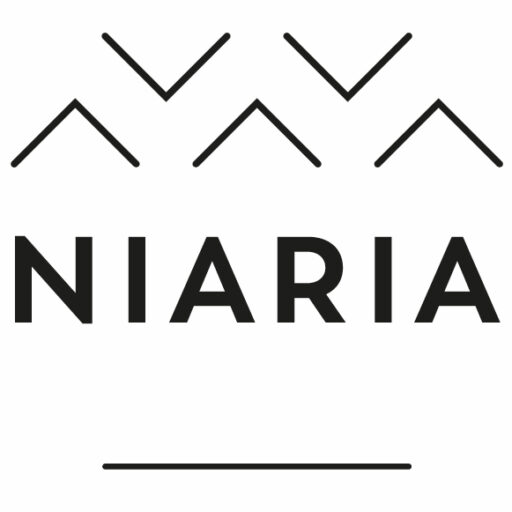
Physiotherapy plays a critical role in managing musculoskeletal diseases by promoting healing, improving mobility, and reducing pain. These conditions, which affect bones, muscles, joints, and connective tissues, can severely impact a person’s quality of life. While physiotherapy is a key treatment, nutrition also plays a vital role in both preventing and managing these diseases. A balanced diet rich in specific nutrients can enhance the healing process, prevent future injuries, and support overall musculoskeletal health. In this article, we will explore the relationship between physiotherapy and nutrition, highlighting the importance of both in managing musculoskeletal diseases.
Why Is Physiotherapy Important?
Physiotherapy is essential for treating and managing musculoskeletal disorders. It uses physical techniques like exercise, massage, and manual therapy to restore movement and function in affected areas. Some of the key benefits of physiotherapy include:
Pain Management:
Through exercises and physical manipulation, physiotherapy reduces pain and discomfort.
Improved Mobility:
Physiotherapy increases joint flexibility and muscle strength, which helps patients regain mobility.
Injury Prevention:
By improving balance, coordination, and muscle strength, physiotherapy reduces the risk of future injuries.
Post-Surgery Rehabilitation:
After surgeries such as joint replacements, physiotherapy is crucial in speeding up recovery and restoring function.
Chronic Disease Management:
For conditions like arthritis or osteoporosis, physiotherapy helps manage symptoms, slows disease progression, and improves the quality of life.
The Role of Nutrition in Musculoskeletal Diseases
Nutrition plays a critical role in the health of bones and muscles. Proper dietary choices can strengthen the musculoskeletal system and help in the recovery process from injuries and chronic conditions. On the other hand, poor nutrition can exacerbate musculoskeletal disorders, slow down recovery, and even contribute to the onset of diseases like osteoporosis and osteoarthritis.
Common Musculoskeletal Disorders Related to Nutrition
Osteoporosis:
This condition weakens bones, making them brittle and prone to fractures. It is often linked to calcium and vitamin D deficiencies.
Osteoarthritis:
A degenerative joint disease that leads to pain and stiffness. Obesity and poor nutrition contribute to its progression.
Muscle Atrophy:
Lack of proper nutrition, particularly protein, can result in muscle wasting, often associated with aging or prolonged inactivity.
Tendonitis:
Inflammation of tendons is often aggravated by poor hydration and inadequate nutrient intake.
Rickets:
A disease of growing children caused by vitamin D deficiency, leading to weakened bones and deformities.
Non-Medication Strategies for Recovery
While medication can help manage symptoms, there are non-medication-based strategies that can accelerate recovery and improve long-term musculoskeletal health:
Physiotherapy Exercises:
Targeted exercises help restore muscle strength and joint flexibility. Consistent engagement in physiotherapy can prevent further deterioration of muscles and bones.
Hydrotherapy:
Water-based exercises are beneficial for those with joint pain, providing low-impact resistance and reducing stress on joints.
Massage and Manual Therapy:
These techniques improve blood flow, relax muscles, and alleviate pain.
Stretching:
Regular stretching improves flexibility, reduces stiffness, and promotes healthy muscle and joint function.
Rest and Proper Sleep:
Sleep is crucial for the body’s recovery process, allowing tissues to heal and repair.

How Physiotherapy Helps the Body Physically
Physiotherapy not only focuses on rehabilitation but also improves the body’s overall physical condition:
Improved Circulation:
Exercises used in physiotherapy boost circulation, which ensures that muscles and joints receive sufficient oxygen and nutrients.
Tissue Healing:
Physiotherapy stimulates tissue repair through targeted movements and techniques that enhance blood flow and nutrient delivery.
Muscle Strengthening:
Strength exercises reduce muscle imbalances and improve stability, which is crucial for people with joint problems or post-surgical patients.
Postural Correction:
Poor posture can lead to muscle strain and joint pain, but physiotherapy can correct alignment issues, reducing strain on bones and muscles.
Nutritional Considerations for Musculoskeletal Health
For effective management and prevention of musculoskeletal disorders, it’s important to focus on nutrition that supports bone and muscle health:
Calcium and Vitamin D:
Essential for bone strength, calcium should be paired with vitamin D, which helps the body absorb calcium. Good sources of calcium include leafy greens like kale, and fish like sardines. For vitamin D, sunlight exposure is key..
Protein:
Protein is crucial for muscle repair and growth. High-quality plant-based proteins such as lentils, quinoa, and tofu are excellent sources. Avoid overconsumption of animal protein, which can increase inflammation in the body.
Omega-3 Fatty Acids:
These antioxidant fats, found in chia seeds, flaxseeds, and walnuts, help reduce joint pain and improve mobility.
Magnesium:
Important for muscle function, magnesium-rich foods include spinach, pumpkin seeds, and almonds. Magnesium aids in reducing muscle cramps and promoting relaxation.
Collagen:
Collagen helps maintain the integrity of cartilage, tendons, and ligaments. Bone broth, made from non-dairy, gluten-free sources, is a popular choice, though supplements can also provide collagen.
Vitamins C and K:
Vitamin C supports collagen production, while vitamin K is essential for bone health. Bell peppers, strawberries, and cruciferous vegetables like broccoli are good sources.
Foods to Avoid for Musculoskeletal Health
Some foods can exacerbate inflammation and slow down recovery in musculoskeletal disorders. The following should be avoided:
Gluten:
For individuals sensitive to gluten or diagnosed with celiac disease, gluten can increase inflammation and worsen joint pain.
Dairy Products:
Dairy may cause inflammation in some individuals and contribute to joint pain. Alternatives like homemade almond drink or coconut yogurt are preferable.
Processed Foods:
High in unhealthy fats, sugars, and additives, processed foods can contribute to chronic inflammation.
Processed Meats:
These foods are high in saturated fats and have been linked to increased inflammation and worsened joint pain.
Recommended Vitamin and Mineral Supplements
To support recovery and prevent musculoskeletal disorders, several vitamins and minerals are particularly important:
Vitamin D:
Supplementation may be necessary, especially in regions with limited sunlight, to support bone health.
Magnesium:
A magnesium supplement can help alleviate muscle cramps and improve overall muscle function.
Omega-3 Supplements:
Omega-3 fatty acids from plant-based sources like flaxseed oil or algae supplements can reduce inflammation.
Vitamin C:
A vitamin C supplement can boost collagen production, promoting joint health and reducing the risk of injury.
Vitamin K2:
K2 supports bone density and helps transport calcium to the bones instead of leaving it in the bloodstream.

Additional Considerations for Musculoskeletal Health
Posture and Ergonomics:
In addition to nutrition and physiotherapy, maintaining proper posture throughout daily activities is essential to reduce the strain on bones and muscles.
Weight Management:
Maintaining a healthy weight reduces the load on joints and prevents conditions like osteoarthritis from worsening.
Mind-Body Practices:
Activities such as yoga and Tai Chi can help improve muscle flexibility, balance, and mental well-being.
Conclusion
Physiotherapy and nutrition are deeply interconnected when it comes to managing musculoskeletal diseases. Physiotherapy helps restore function, reduce pain, and improve mobility, while nutrition ensures that the body gets the nutrients it needs to heal and strengthen. By combining these approaches, individuals with musculoskeletal disorders can significantly improve their quality of life. Avoiding inflammatory foods like gluten and dairy and incorporating nutrient-rich options like leafy greens, plant-based proteins, and omega-3s can make a substantial difference in managing these conditions effectively.
Subscribe to our newsletter, follow us on social media to let us know how you’re working towards a balanced life!
Oral Health: Causes, Prevention, and the Role of Nutrition
Oral health is often a neglected part of our...
Food Allergies: Causes, Symptoms, and Management
Food allergies and sensitivities are...
Unintentional Weight Loss
Unintentional weight loss can be distressing,...
The Negative Impacts of Plastic Usage on Health and the Environment
Plastic has revolutionized modern life,...
The Impact of Social Media on Body Image: How It Affects Women’s Health
Social media has transformed how we connect,...
Why Women Need Nutrition Counseling Beyond Weight Loss
Women face unique challenges when it comes to...
The Benefits of Journaling for Mental Health
Journaling has gained recognition as a powerful...
Minimalism and Health: The Effects of a Minimalist Lifestyle on Mental and Physical Well-being
Living in a world where consumerism and constant...
Physical activity: Cardio, Strength Training, Yoga, and Pilates
Engagement in regular physical activity is...










